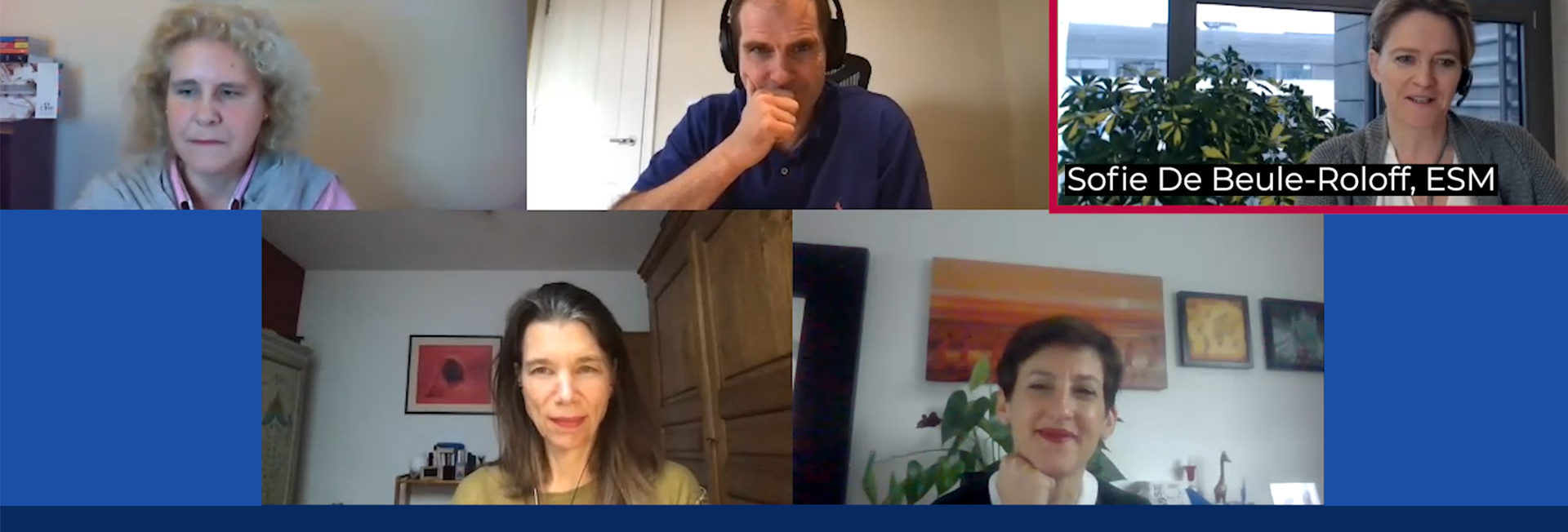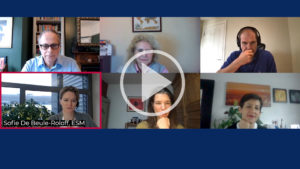5 Ways to Remotely Manage Innovation and Effectiveness
The widespread shift to remote working presents us all with a unique opportunity to rethink organisational effectiveness.
CEDR held a landmark interactive webinar with our conflict engagement experts alongside international business leaders and a global audience to explore how to create an environment, particularly in a virtual setting, more conducive to innovation, engagement and wellbeing.
Our conflict management training and mediation experience tell us that teams who are working remotely face many of the same challenges as teams operating in person.
Ineffective communication and an absence of constructive or ‘good’ conflict stem ultimately from a lack of trust. At its worst, it can lead to inattention to results and can diminish commitment to business objectives.
Unfortunately, the pandemic induced lockdown has brought this to the fore for many teams and organisations.
What does an Organisation need in order to Ensure Innovation and Effectiveness?
In the ‘old’ world – before COVID-19 – CEDR advocated 3 components, critical to effective innovation management:
- Learning Agility – this requires teams to spend more time experimenting rather than planning and to positively engage in conflict.
- Social Skills – persuasion, emotional intelligence, listening, empathy, creativity and communication. These skills are increasingly in demand across all industries as organisations look to harness what automation and artificial intelligence can’t.
- Better Conflicts – collaboration doesn’t mean people will agree on everything. Disagreements are part of working together and everyone in the team, including the leader, need relationship and process skills to engage effectively across difference, to turn conflict into opportunity.
These components remain indispensable.
But, in order to remain innovative and effective, you need to upgrade and upscale them in every respect.
Here are five things you can do to ensure innovative potential and overall effectiveness identified by international business leaders.
-
Moving from Implicit to Explicit
Typical ‘water cooler’ or ‘coffee machine’ conversations do not happen anymore by default. Operating remotely means that we have to put words to what was previously achieved by a simple gesture or casual confirmation. Ensuring colleagues can interact informally is key.
In order to avoid making assumptions and creating our own ‘stories’, we need to make an effort to spell things out and to create more clarity.
This applies, particularly with agreements with staff members and teams – on ways of working, how we want to communicate, which values we share, and on roles and responsibilities. This enhances cohesion and accountability.
Overall, it helps to align the business on all levels.
-
Attentive in our Observations and Intentional in our Actions
When you only see people’s head and shoulders, there is not as much body to get language cues from.
In some meetings, you don’t see each other at all or they are merely the size of a postage stamp.
Warning signs of potential conflicts are much less visible and therefore can go unaddressed for longer, with potentially catastrophic outcomes.
From our online mediation experience, we have learned it has become vitally important to become more mindful observers. We all learned from our unconscious bias training sessions that there is a risk of moving from factual observation directly to self-generated interpretation and the drawing of wild conclusions.
We spoke about a new form of observing, the equivalent to active listening – attentive observing. This coming from a space of curiosity and non-judgment. One then reflects and acts with intention, being aware that there might still be an undesired impact.
-
Giving a Voice to those who haven’t a Voice Before
We need now, more than ever, to be acutely aware of groupthink and wilful blindness.
Businesses fail to innovate because they didn’t involve those who could’ve added value.
Part of this is remaining steadfastly committed, even in these challenging times, to diversity, equity and inclusion.
Discarding different opinions and not involving everyone in the organisation, from the top to the shop floor, means denying decision-makers with the knowledge critical for success.
It also creates a diminished sense of commitment and a lack of personal accountability.
And, we all know where this ends – Nokia, Kodak, Polaroid, Toys R Us, Compaq, Pan Am and many others.
-
Creating ’Safe-to-Fail’ Spaces
“A person who never made a mistake never tried anything new.” (Albert Einstein).
Many organisations have already understood the need to create policies that enable good things, instead of just, stopping bad things. Some of the best, most innovative ideas and solutions are borne out of challenging discussions and the robust exchange of views.
To actively ensure this and to create a no-blame culture, set up spaces or interactions (virtually for now) where people are encouraged to take risks and to fail without fear of judgement or repercussions.
This encourages innovation.
-
Being Prepared for Complexity
“You can get away with hierarchy” when all is going well.
There is a difference between complicated and complex.
Hierarchy helps when managing complicated issues because you know the answers.
But, when it comes to dealing with complexity, such as a global pandemic, leaders do not have, nor should they be expected to have all the answers.
We first need to understand the context, the environment and the virtual landscape to be prepared for complexity. Then we must create and work with networks composed of autonomous, self-learning teams, forming communities that are fully accountable for their actions.
There is a plethora of sound advice out there for putting such an effective team together.
A particular emphasis can be put on the diversity of a team in order to:
- Pool together complementary skills
- Discourage groupthink
- Increase creativity and productivity
However, diversity alone does not signify that all members of the team will contribute equally to the assignment, project or crisis at hand – whether virtual or not.
It is about encouraging divergent thinking and designing a constructive conflict culture that allows for proper innovation management.
It is easy to be persuaded why collaboration and constructive conflict is important for an organisation’s success. Taking any product or service to market now is the result of a much wider group of people, organisations and processes. The supply chain is becoming longer, teams are global and the workplace is becoming more and more virtual. – Andy Grossman, CEDR
Listen to our panel of International Business Leaders discuss these issues.



